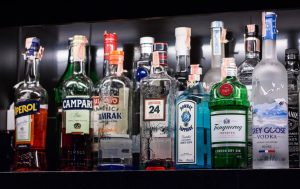
Before we get into specifics, it’s important to note that alcohol should be consumed in moderation. It doesn’t just affect your liver, but your overall health.
Medically speaking, men can have up to 15 drinks a week, or up to three a day. Women should not exceed 10 drinks a week or two a day. The daily limit is important to keep in mind – even if you only drink on the weekend, it can still be harmful.
Drinking recommendations are based on the fact that exceeding these limits can begin to harm the liver, generally speaking. Every person is different, and this doesn’t necessarily apply to everyone based on their unique circumstances.
Some people may “lessen the blow” so to speak and avoid “hard” liquors and believe they aren’t harming their liver, but regardless of what alcoholic beverage you consume, alcohol is alcohol and any type can ultimately begin to harm your liver and health.
Alcohol can affect the liver in several negative ways from alcoholic fatty liver disease, increasing blood pressure, which can be detrimental to the liver, hepatitis, cirrhosis, and even liver failure. Furthermore, alcohol can negatively impact the heart and increase the risk of heart disease, impair sleep, trigger inflammation in the body, and even impact your digestive system.
Now, back to our original question. Based on the latest research findings published in The Lancet, researchers determined that zero alcoholic beverages are the safest to consume for your liver. The researchers looked at alcoholic consumption from individuals from 195 different countries.
Among the age group of 15 to 49 years, alcoholic-related deaths were one in 10. Alcohol consumption was associated with a higher risk of cancer, cardiovascular disease, infection, intentional injury, traffic accidents, drowning, and fires.
Alcohol affects every cell in our body, from head to toe. For this reason, it’s best to avoid it. But if you can’t, be smart with your consumption.
Although it isn’t recommended to consume any alcohol, as any amount is enough to harm your liver and overall health, ensure that you’re at least not exceeding the recommended guidelines to somewhat prevent complications.
Also read:
- What causes liver pain?
- What causes liver pain after drinking?
- Natural foods for liver repair and liver cleansing
- NAFLD diet plan: Dietary guidelines for non-alcoholic fatty liver disease